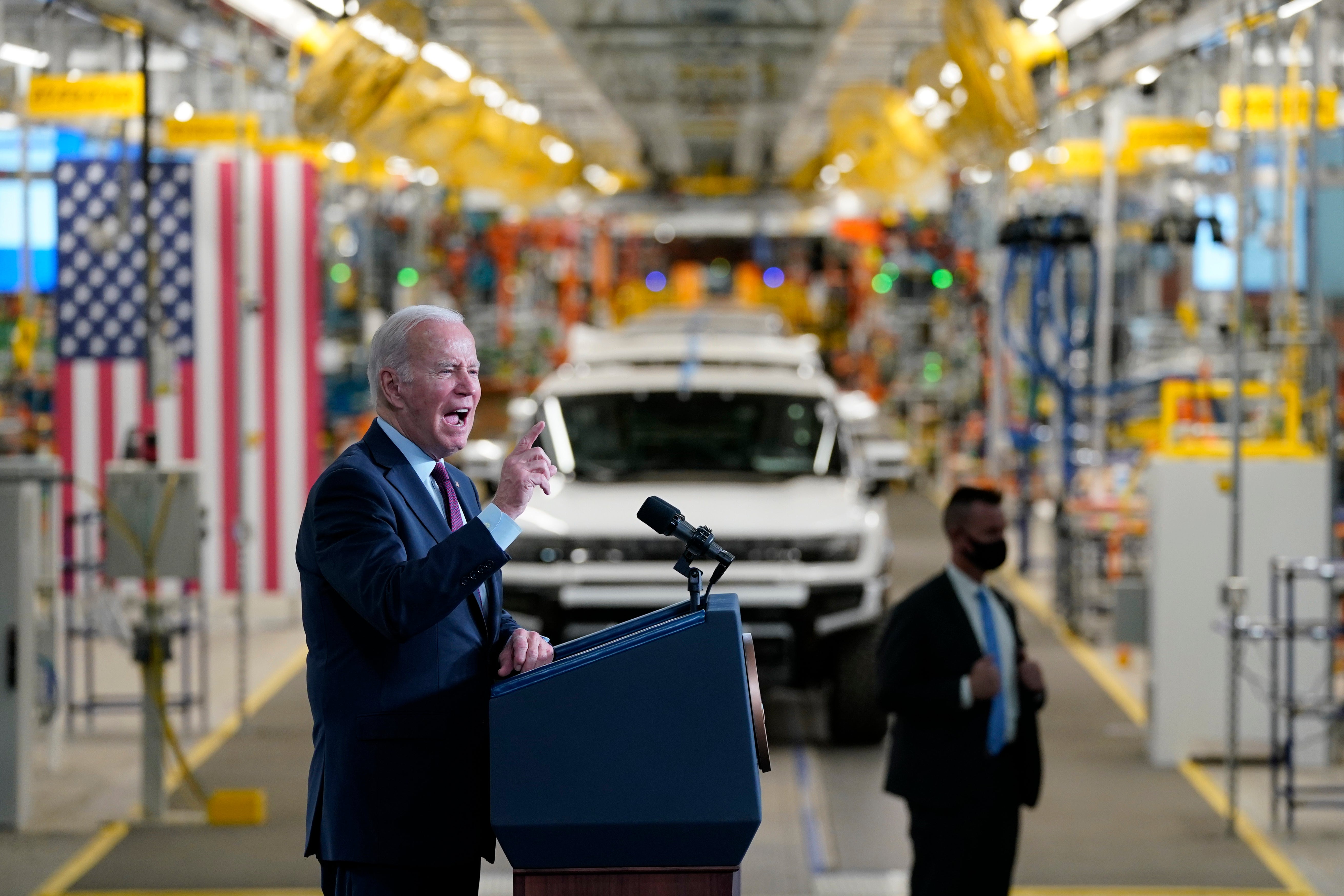US electric vehicle charging network strategy being released
The Biden administration is set to release a federal strategy to build 500,000 charging stations for electric vehicles across the country and ultimately transform the U.S. auto industry

Your support helps us to tell the story
From reproductive rights to climate change to Big Tech, The Independent is on the ground when the story is developing. Whether it's investigating the financials of Elon Musk's pro-Trump PAC or producing our latest documentary, 'The A Word', which shines a light on the American women fighting for reproductive rights, we know how important it is to parse out the facts from the messaging.
At such a critical moment in US history, we need reporters on the ground. Your donation allows us to keep sending journalists to speak to both sides of the story.
The Independent is trusted by Americans across the entire political spectrum. And unlike many other quality news outlets, we choose not to lock Americans out of our reporting and analysis with paywalls. We believe quality journalism should be available to everyone, paid for by those who can afford it.
Your support makes all the difference.The Biden administration is set to release a federal strategy Monday to implement an ambitious plan to build 500,000 charging stations for electric vehicles across the country and ultimately transform the U.S. auto industry.
The $1 trillion infrastructure law President Joe Biden signed last month authorizes the charging stations and sets aside $5 billion for states, with a goal to build a national charging network. The law also provides an additional $2.5 billion for local grants to support charging stations in rural areas and in disadvantaged communities.
“President Biden, American families, automakers, and autoworkers agree: the future of transportation is electric,'' the White House said in a statement. “The electric car future is cleaner, more equitable, more affordable and an economic opportunity to support good-paying, union jobs.''
Accelerated adoption of electric vehicles for personal cars and commercial fleets would help achieve Biden's goal of net-zero greenhouse gas emission by 2050 while creating thousands of jobs, the White House said.
The effort also is intended to help the U.S. leapfrog China in the plug-in EV market. Currently, the U.S. market share of plug-in electric vehicle sales is one-third the size of the Chinese EV market.
Biden has set a goal that electric cars and trucks account for half of new vehicles sold by 2030.
Vice President Kamala Harris planned to announce the vehicle-charging strategy Monday at an event in suburban Maryland
Harris was to appear at a maintenance facility in Brandywine, just outside Washington where she will also receive a briefing about work to electrify the fleet in Maryland's Prince George’s County.
The new EV charging strategy establishes a joint electric vehicles office between the federal Energy and Transportation departments; issues guidance and standards for states; and ensures consultations with manufacturers, state and local governments, environmental justice and civil rights groups, tribes and others.
The two departments also will launch an advisory committee on electric vehicles that officials hope is up and running early next year.
The Brandywine site features electric vehicle chargers that currently are the only ones in the local area, filling what the White House called “a key gap in the region’s electric vehicle charging network.''
Harris is expected to renew her call for Democrats to approve Biden's $2 trillion social and environmental policy bill, now pending in the Senate. The bill, officially known as the Build Back Better Act, will cut the sticker price of new and used electric vehicles, among other benefits, the White House said.
Republicans, including some who voted in favor of the new infrastructure law, have criticized Biden for being preoccupied with electric vehicle technology when Americans are contending with a spike in gasoline and natural gas prices.
Biden last month ordered a record 50 million barrels of oil released from America’s strategic reserve, in coordination with other major energy consuming nations. Gas prices have fallen in recent weeks as fears grow of a possible economic slowdown from the coronavirus pandemic.
Average prices on Sunday were $3.33 per gallon, according to the American Automobile Association, down about 7 cents from late last month.